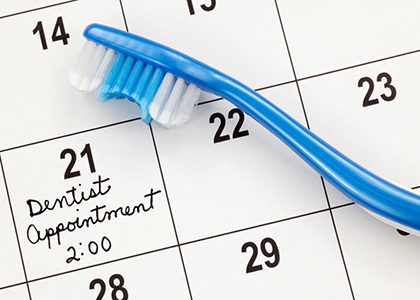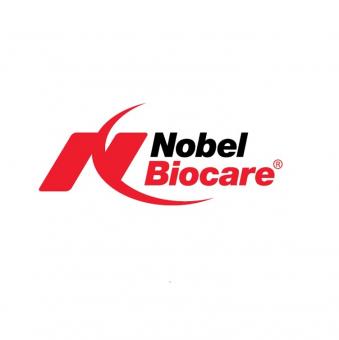Blisters on the Tongue: Causes, Symptoms, and Treatment
Blisters on the tongue often appear and, although usually harmless, can cause significant discomfort if not treated promptly. These small, painful blisters on the tongue can arise for various reasons, and it's important to understand their formation and treatment to avoid more serious problems.
In this blog post, we'll explore in detail the causes, symptoms, and treatment options for blisters on the tongue to help alleviate discomfort and prevent their potential development.
How Do Blisters on the Tongue Develop?
There are many causes for the development of blisters on the tongue. Common triggers include minor injuries, such as bites or scratches caused by foods. Reactions to foods, such as consuming spicy or acidic items, can also irritate the tongue and lead to one or more small white blisters. Bacterial or viral infections, like herpes simplex, can also cause blisters. Additionally, stress can contribute to the formation of painful blisters by weakening the immune system, making the oral cavity more susceptible to infections.
Types of Blisters
Blisters on the tongue can vary in size, shape, and color, originating from different causes. These blisters can produce varying symptoms and discomfort.
White Blisters on the Tongue White blisters are often small, painful sores, which could be canker sores or symptoms of herpes. These blisters are usually inflamed, sensitive, and painful, especially when touched or during eating.
Red Blisters on the Tongue Red blisters on the tongue generally indicate inflammation and irritation. These are often caused by bacterial or viral infections, such as herpes. Red blisters are swollen and painful, often causing a burning sensation.
Symptoms of Blisters on the Tongue
Blisters on the tongue can cause numerous uncomfortable symptoms. The most common include pain, especially noticeable during eating and speaking. Swelling and redness are also common, increasing discomfort. Eating difficulties due to the blisters can impair appetite and complicate nutrient intake, as foods often sting and irritate the small blisters.
Blisters at the Back of the Tongue
Blisters at the back of the tongue can be particularly unpleasant, as this area is harder to observe and treat. They are often painful and sensitive, complicating eating and speaking. Due to the sensitivity of this area, these blisters often cause more intense pain and take longer to heal.
Treatment of Blisters on the Tongue
There are various methods available for treating blisters on the tongue, from medical interventions to home remedies. In most cases, home care is sufficient to disinfect the small blisters and alleviate symptoms, allowing them to fully resolve within 1-2 weeks without causing further discomfort.
Over-the-counter Products Oral Anesthetics: These products can temporarily reduce pain and discomfort. Available in gel or spray form, they can be applied directly to the blister.
Anti-inflammatory Gels: Over-the-counter gels can help reduce inflammation and swelling, speeding up the healing process.
Home Remedies Saltwater Rinse: Dissolve a teaspoon of salt in a glass of warm water and rinse the mouth. This helps disinfect the area and reduce inflammation.
Clove Oil: Clove oil has natural pain-relieving and antibacterial properties. Apply directly to the blister using a cotton swab.
Chamomile Tea: Rinsing with chamomile tea can provide soothing and anti-inflammatory effects.
These methods can help relieve pain and accelerate healing, but in persistent or severe cases, it's always recommended to consult a doctor.
Prevention Strategies
To prevent blisters on the tongue, it's important to maintain proper oral hygiene, including brushing twice daily and using dental floss. Avoid overly hot, spicy, or acidic foods that can irritate the tongue. Use relaxation techniques, such as meditation or yoga, to manage stress. Wear a mouthguard during sports to avoid oral injuries. Regular mouth rinses, such as with salt water or commercial mouthwashes, can help prevent infections.
Frequently Asked Questions
Are small blisters on the tongue contagious? Yes, small blisters can be contagious, especially if they are caused by viral infections, such as herpes simplex.
Can some people be prone to blisters while others never experience them? Yes, some people are more susceptible to developing blisters on the tongue, especially if they are sensitive to irritation, allergies, or prone to stress. Genetic factors and lifestyle can also play a role.
How long do white blisters on the tongue last? White blisters typically heal within 7-10 days, but this duration can vary depending on the size and cause of the blisters. If blisters persist or worsen, it's advisable to consult a doctor.
What can I do to reduce the pain of blisters on the tongue? To alleviate pain, you can use saltwater rinses or clove oil. Anti-inflammatory gels and oral anesthetics can also help ease the pain.
How can I prevent blisters on the tongue? Maintaining proper oral hygiene, managing stress, and avoiding irritating foods can help prevent the formation of blisters. Additionally, wearing mouthguards during sports can also contribute to prevention.
If blisters persist or worsen, or if they recur frequently, be sure to consult your doctor for appropriate treatment. Book an appointment at our Fehérvári Dental clinic for an oral hygiene examination today by calling us directly at +36 1 445 0011.





















